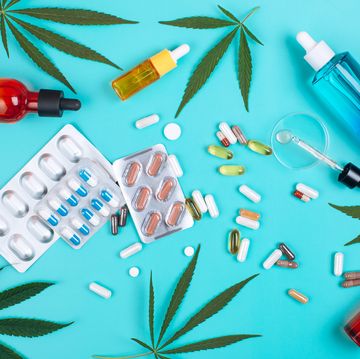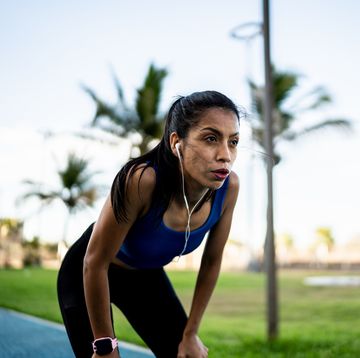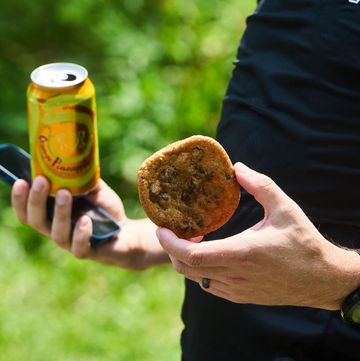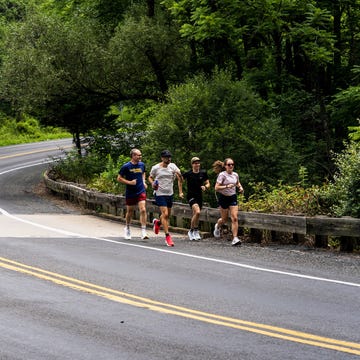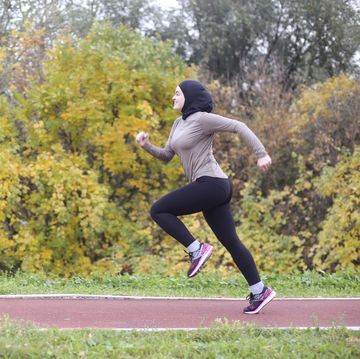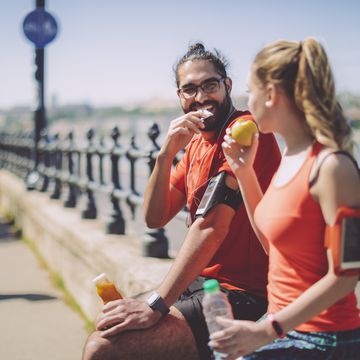- A recent study Health in the News Mediators of Inflammation journal found that people who follow a low-carb diet had higher inflammation postmarathon than those who ate higher amounts of carbs.
- Getting enough carbs is essential for postmarathon tissue repair and recovery.
- The results recommend dietary carb intake of 4.5 to 5.4 grams per pound of body weight to help with postmarathon recovery.
It’s a well-known fact runners carb load before a big race. After all, it’s important to fuel up Thats because a recovery. A recent study Health in the News Mediators of Inflammation journal found that following a low-carb diet led to higher levels of inflammation—which hindered recovery—after running a marathon.
Researchers tracked daily intake of carbs in 44 male Brazilian runners for one week before the 2017 São Paulo International Marathon and tested blood samples that were collected one day before, immediately after, and one day and three days after the race to measure inflammation.
They discovered runners with a daily carb intake lower than 1.4 grams of carbs per pound of body weight had higher inflammation postrace, which negatively affected recovery, compared to those who consumed more than 2.3 grams of carbs per pound of body weight.
That’s because a low-carb diet increases the risk of glycogen depletion during competition, Maria Fernanda Cury-Boaventura, Ph.D.,a professor at the Institute of Physical Activity and Sport Sciences at Southern Cross University in Brazil told Runner’s World.
Glycogen is your body’s most easily accessible form of energy (when you run out, that’s when you feel like you hit “the wall” ). Plus, running out of glycogen prompts the release of a stress hormone that affects the inflammatory cells, causing inflammation to spike postmarathon and hindering tissue repair that’s essential to recovery—another reason you need to get enough carbs, Cury-Boaventura said.
[Download the All Out Studio App for some sweaty Runner’s World workouts.]
“The inflammatory process is essential to tissue repair and athletes recovery,” Cury Boaventura said. “However, hyperinflammation after a marathon race may promote an anti-inflammatory response one to three days after exercise called an ‘open window,’ which can impair tissue repair and athlete recovery.”
To aid postmarathon recovery, the recommended daily carb intake is 4.5 to 5.4 grams per pound of body weight for marathon runners to help with tissue repair and postrace recovery, said Cury-Boaventura. And though the study was done in males, Cury-Boaventura said this daily carb recommendation is also applicable to female runners.
“Nutritional strategies should be undertaken to raise awareness of the importance of daily food intake in performance and health,” Cury Boaventura said.
Meaning, you don’t just want to eat carbs the night before and call it good. Sure, your diet should be 85 to 95 percent carbs Does Cannabis Affect Workout Performance prerace dinner and breakfast. But, you should be consistently eating a healthy diet hit the wall.






